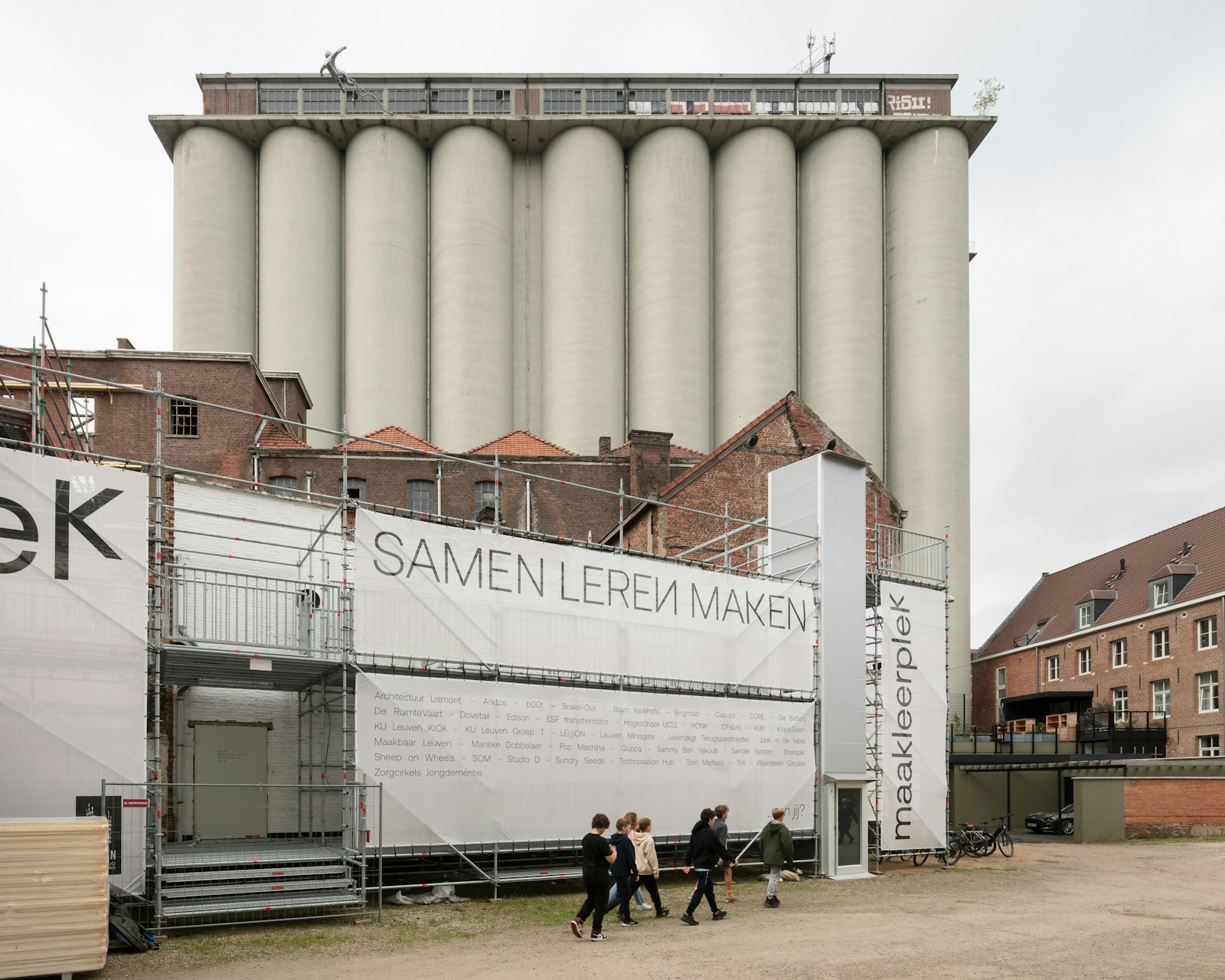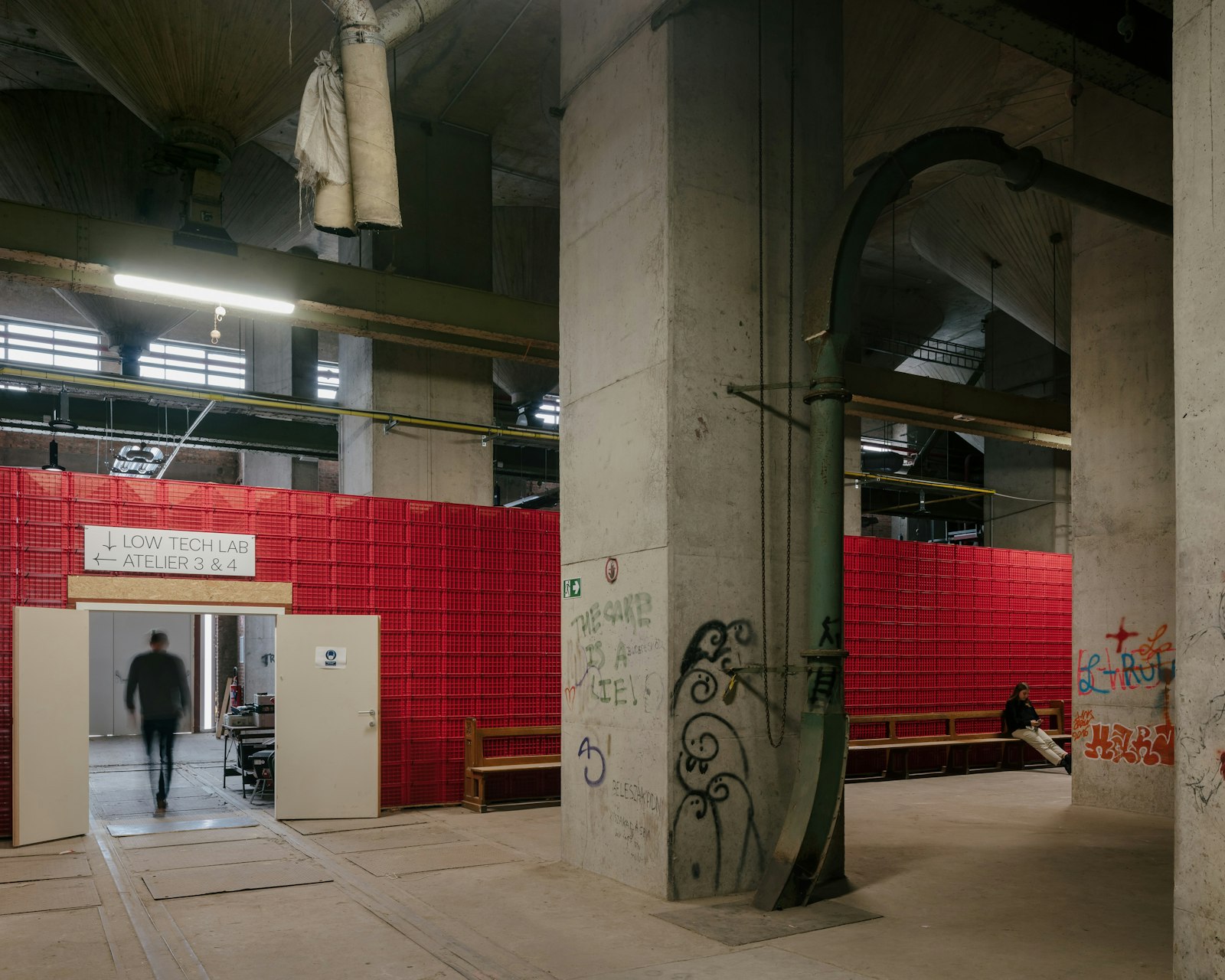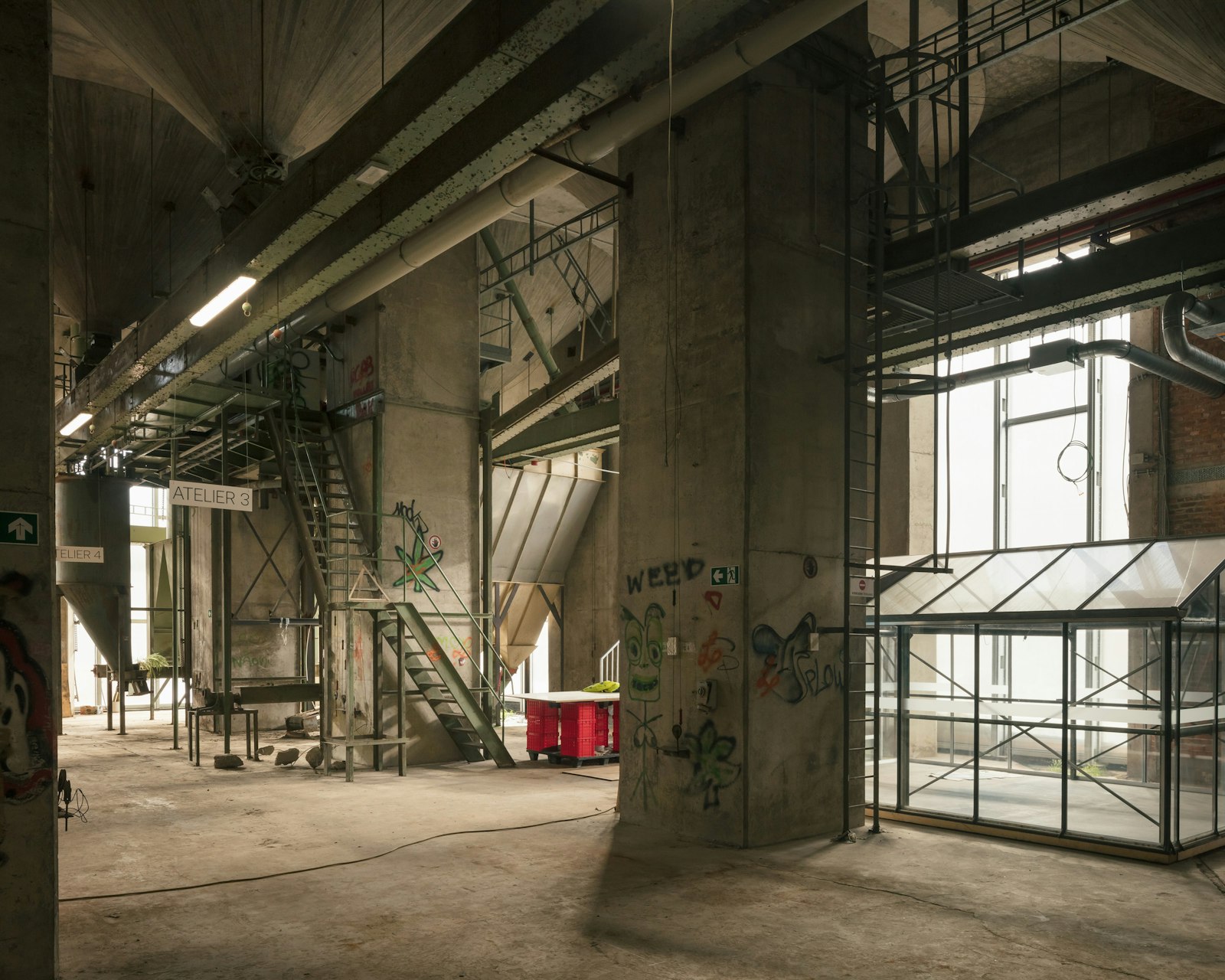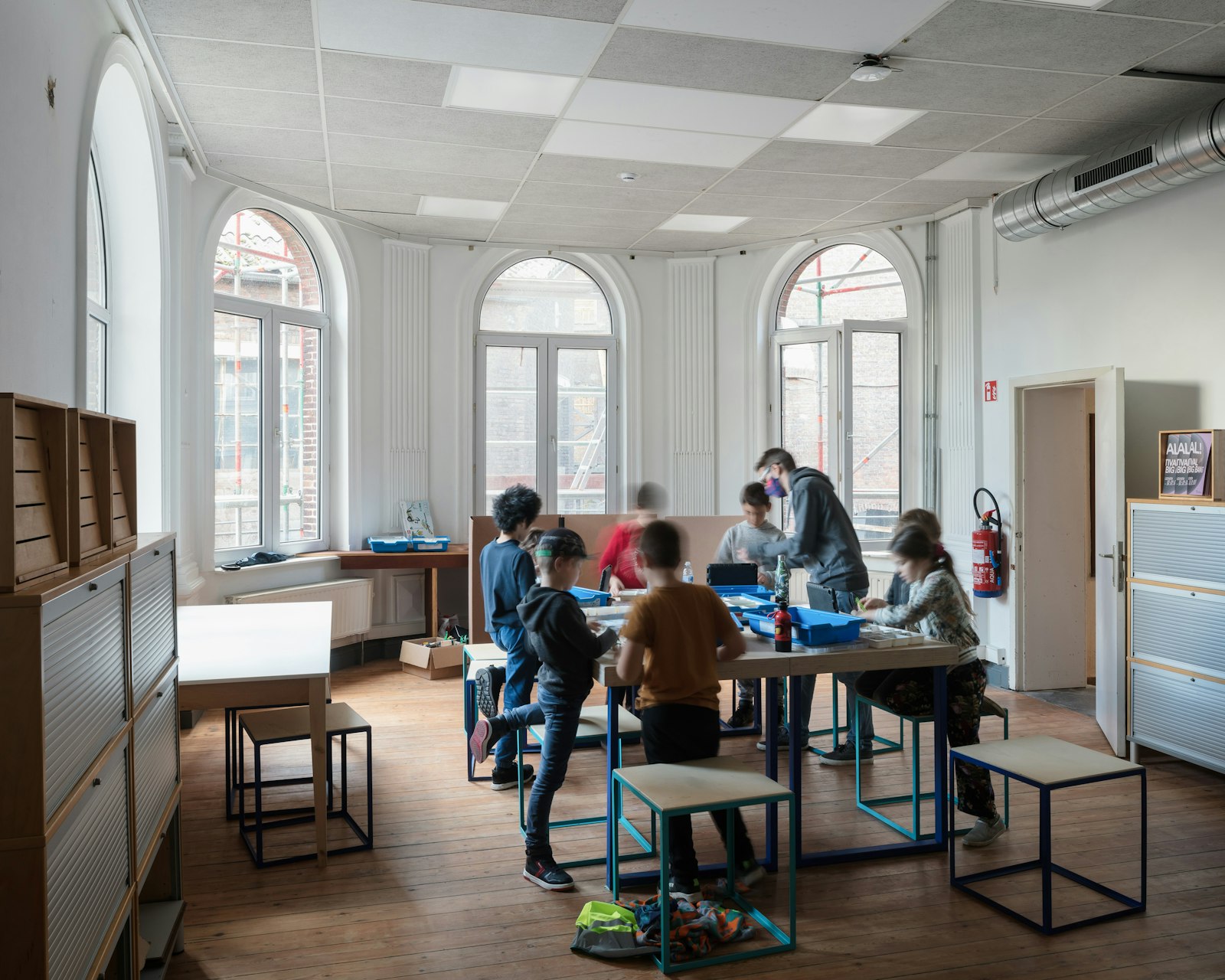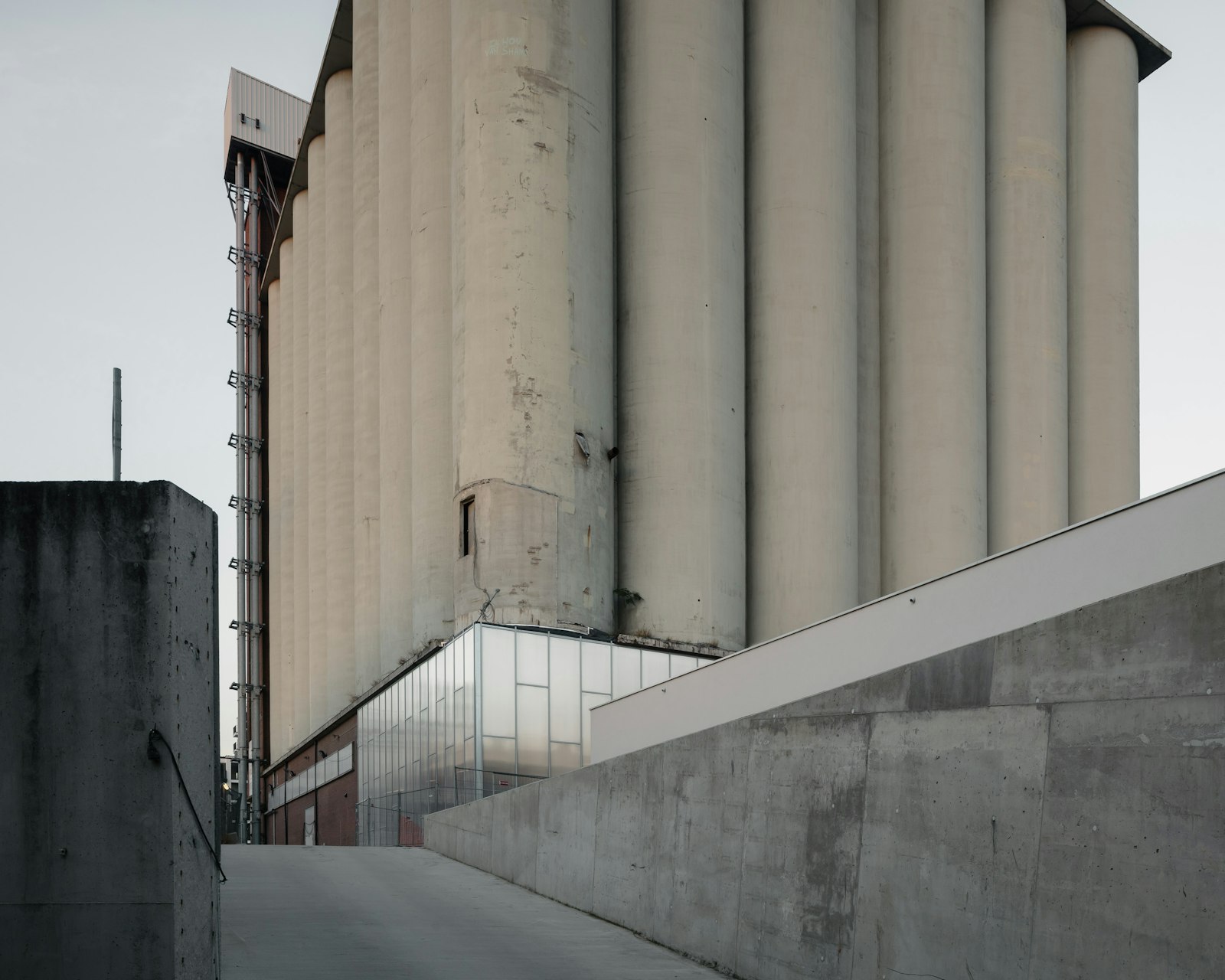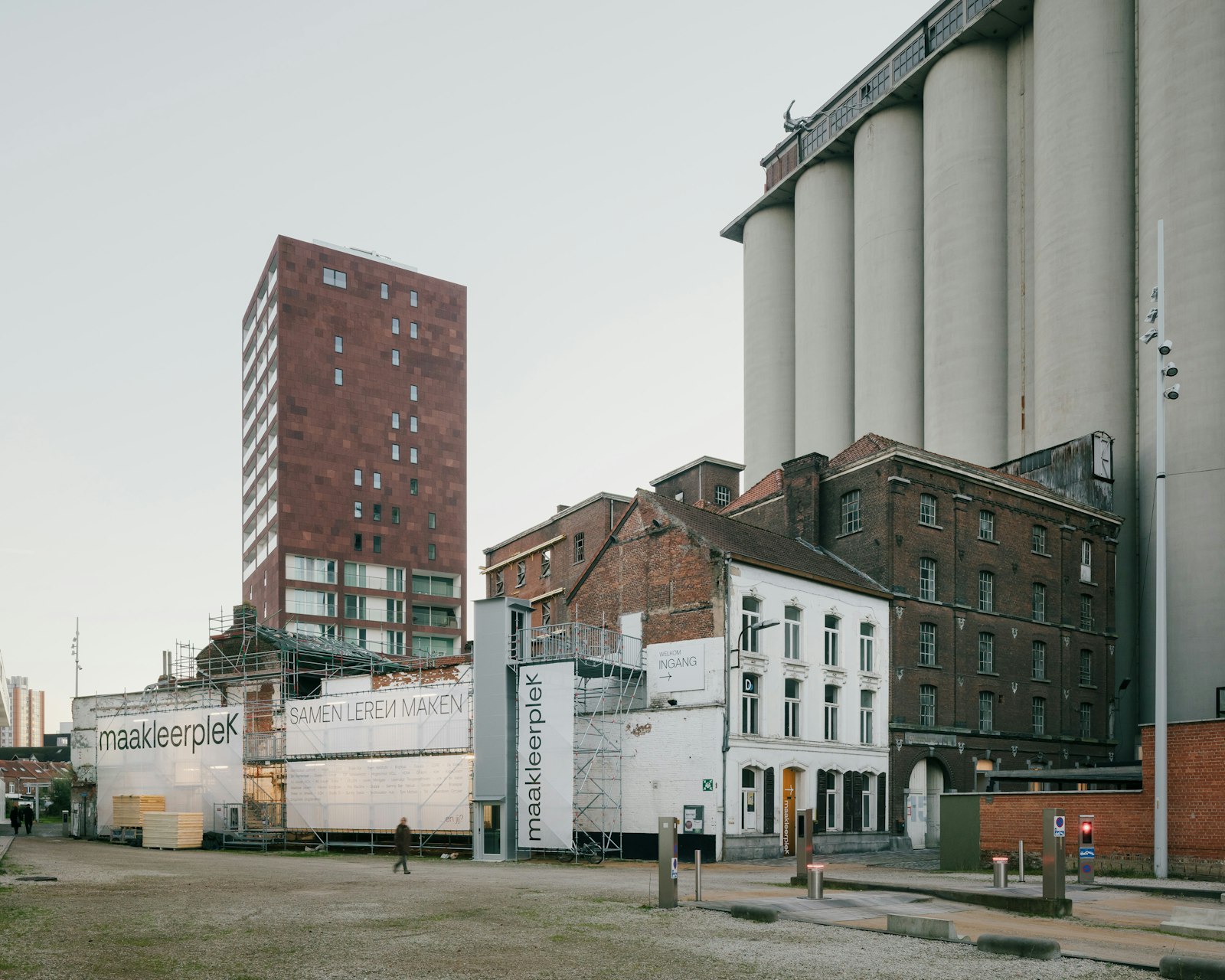de Velde
Maakleerplek Leuven
Maakleerplek Leuven is a temporary circular set-up of the Silos and Mills Van Orshoven in Leuven.
The Silos and Mills Van Orshoven in Leuven were temporarily set up as a co-working space by the architects of Polo. Within the period of its temporary use, the city, the neighbourhood and educational, cultural and economic partners discover how surprising collaborations and projects can emerge at the impressive location. Every intervention had to be fully redeployable at a different, future location. Minimal and sustainable interventions make concrete interpretations possible for various different users. The flexibility of the spaces is central to the design, whereby the functions can change according to the needs of the moment.
The jury on Maakleerplek Leuven:
“With this project, an industrial building receives an upgrade, appealing to various target groups.”
What does this award mean to you?
Polo: It is the culmination of a small project that touches on important issues. It’s an experiment in circularity. It requires a design strategy that not only focuses on this specific situation, but envisages how elements as a whole, without downgrading, can be deployed elsewhere, in as yet unknown places. This issue is becoming ever more urgent. We want to invest in the research around this. We look ahead and come up with new spatial models for a future, more sustainable society. The culmination of the project must be a loud call to action.
What makes the project so special?
Polo: The interventions to make the location usable are architecturally interesting, despite their temporary nature. They are not eye-catching interventions. However, it was an intensive process because the client, architect and contractor entered unknown territory. They also had to come up with a “correct” collaboration with the users of the co-working space. This is not just industry 2.0, but also architecture 2.0. Polo believes in the transformative power of communication and connecting people. We have become experts in initiating and organising creative cross-pollinations. By broadening our role as a designer to that of a spatial strategist, we try to make connections with disciplines such as sociology, psychology and ecology.
How does it contribute to a better world?
Polo: Co-working spaces are about knowledge and craftsmanship that are taught by a master in the workplace. On the one hand, there is a growing awareness that local production is important. Such 2.0 companies need different staff from that which technical schools offer. More hands-on, more agile and engaged. On the other hand, the school system does not appear to be the ideal place for everyone. Many benefit from an alternative education. Attention to people is central; it relies on humanist values such as inclusion, equality and accessibility. The value of a design ultimately lies in how it serves a purpose and makes people’s lives better. The hardware that Polo designs is only complete when it is supplemented with the software of human presence and creativity.
